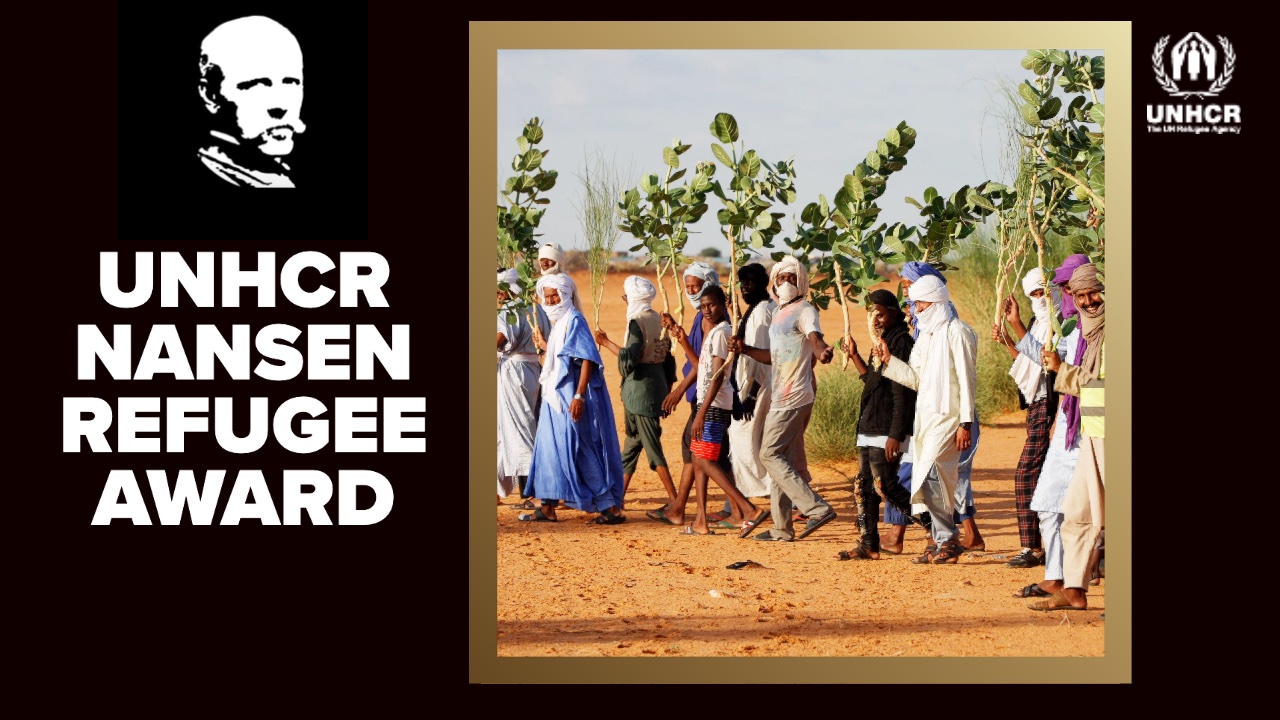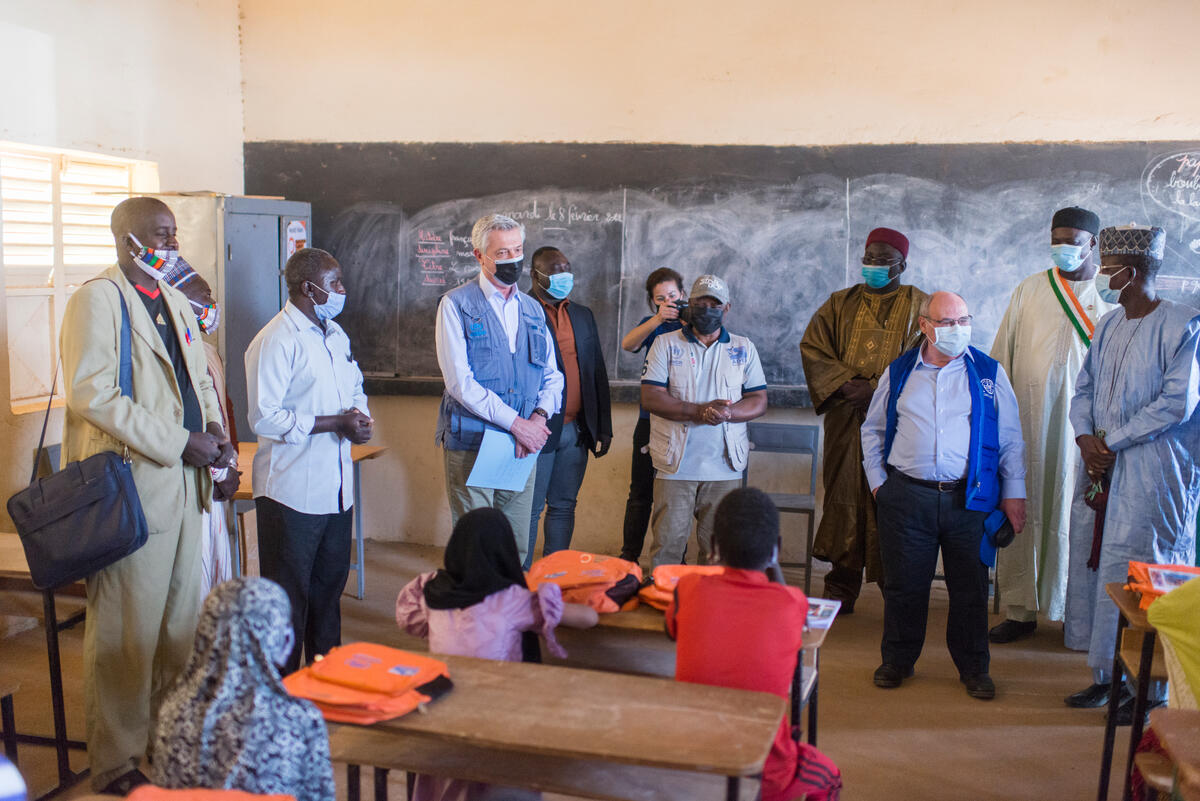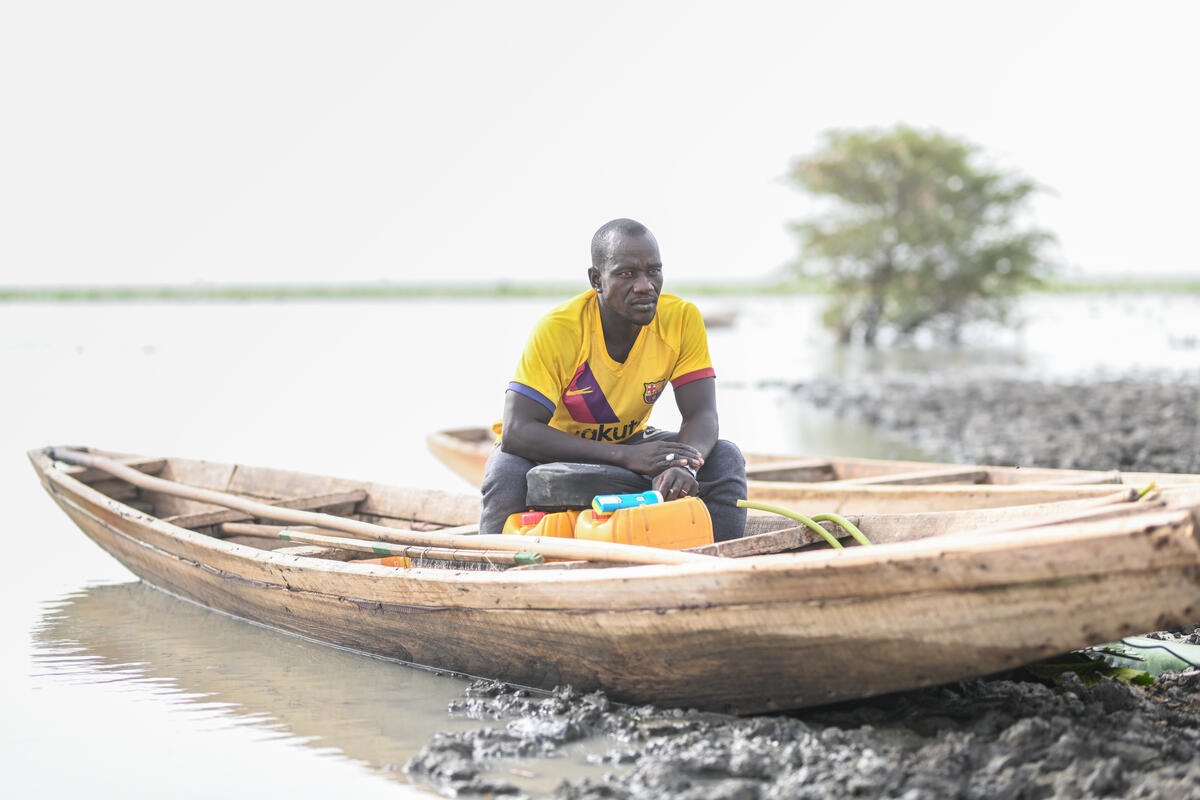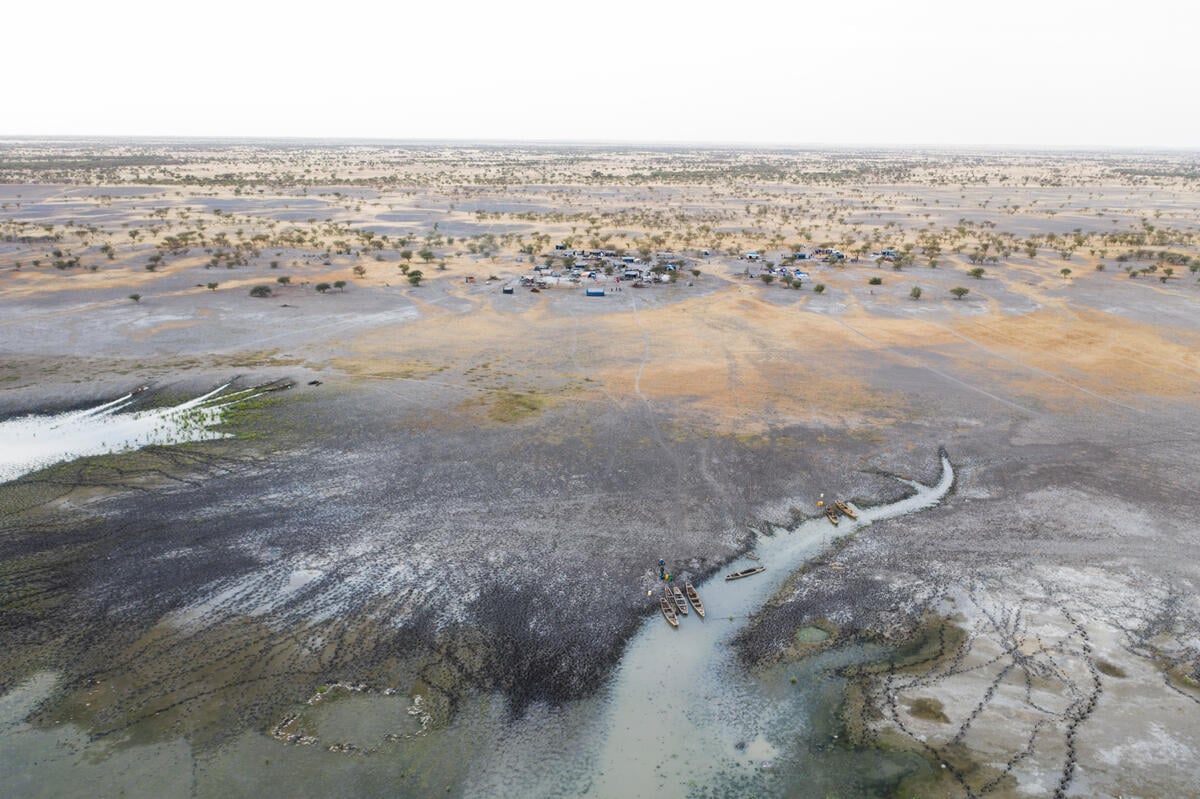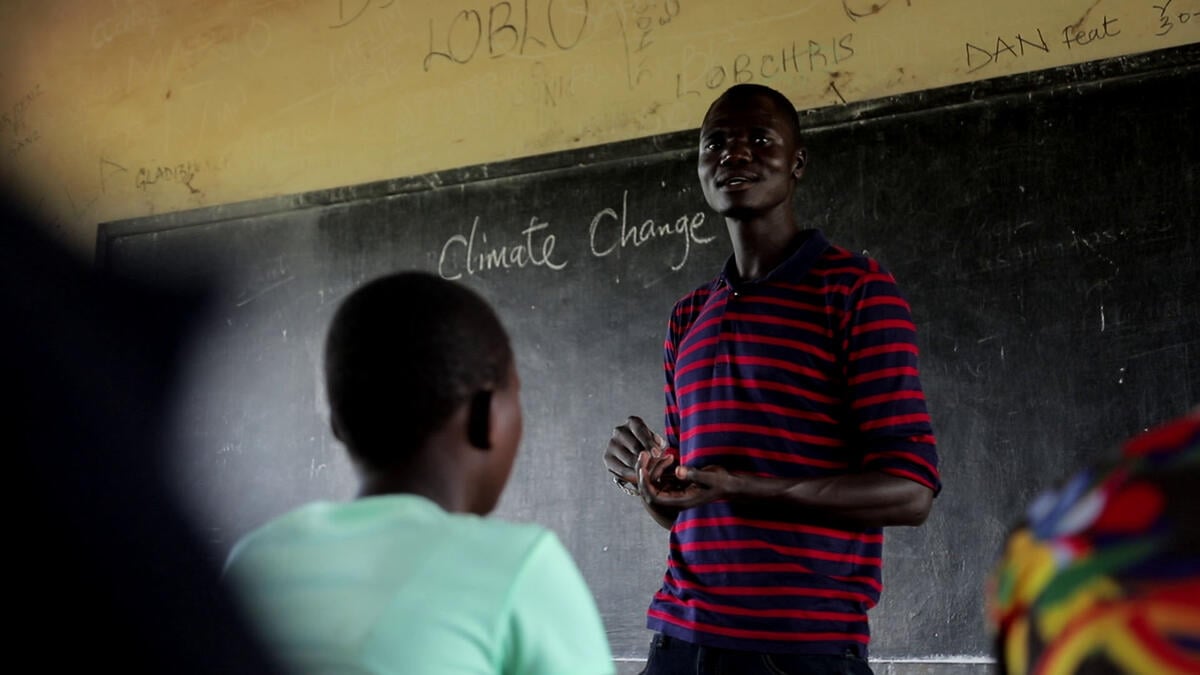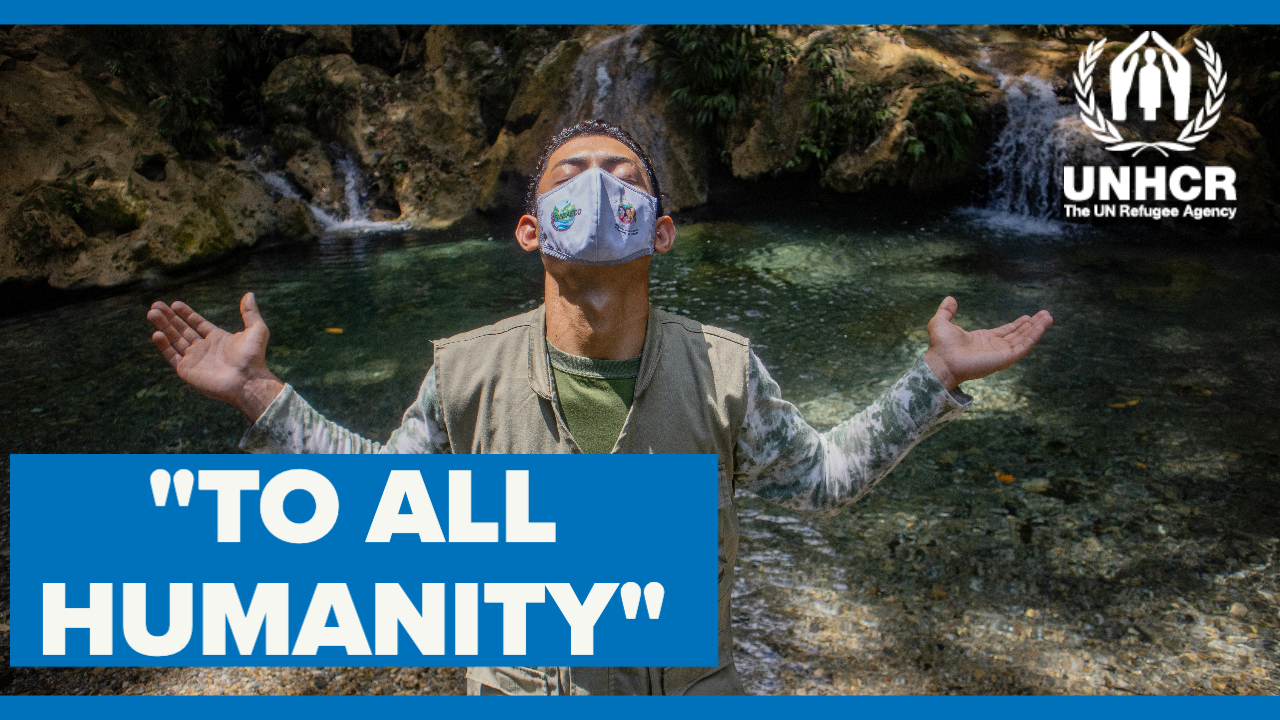Solar cooker offers ray of hope for refugee environment
Solar cooker offers ray of hope for refugee environment

GENEVA, June 4 (UNHCR) - Decades of development and trial and error may finally bear fruit to protect the environment, reduce risks to refugees and save money in refugee situations where firewood is scarce.
A new trial run of solar cookers in two refugee camps in Kenya is nearing completion and the results could lead to expansion of the stove project into other refugee situations.
Solar cookers have been tried out in refugee camps in the past with mixed results. The stoves often took many hours to cook a meal, did not last long in the harsh environmental conditions often found in refugee camps, or were too expensive to provide on a large scale or too bulky to allow for easy shipping and delivery to remote camp sites.
The latest design being tested in the two camps, however, is more efficient and cheaper to produce and transport. Valentine Ndibalema, UNHCR's senior technical officer for the environment, estimates that this design is at least the 10th prototype put forward over many decades of experimentation with solar cooking.
The stoves - known as parabolic solar cookers - can boil up to eight litres of water in an hour, and come in ready-to-assemble kits with pre-punched parts to allow for cheaper production and compact packaging for cheaper, easier shipping. In addition to quicker cooking speeds and the more cost efficient design, the cookers have a longer lifespan, estimated at five to 15 years with proper maintenance.
Some 1,000 of the new cookers were delivered last fall to Dadaab and Kakuma camps in Kenya. The refugees in these two camps have suffered for years due to shortages of firewood. Women and girls often had to leave the camps and scavenge farther and farther away for firewood as the local supply became increasingly depleted. They often fell victim to bandit attacks and sexual assault while foraging for wood.
At the same time, deforestation around refugee camps can be disastrous for the local environment and can provoke tensions with the local population and authorities of the host country.
In Dadaab and Kakuma, UNHCR has had to resort to providing supplemental wood as part of humanitarian assistance in the camps. The initiative is costly and poses a major logistical challenge, given the large volumes of firewood needed each day to meet the needs of hundreds of thousands of refugees.
The cookers in Dadaab and Kakuma camps have been in use for some five months now and the final results of the trial phase are expected in July. Preliminary feedback, while noting some drawbacks to the new technology, has been encouraging. Refugees have largely accepted the cookers and have put them to use in their daily cooking, and more refugee families have asked for the cookers than the pilot supply could accommodate.
"If the results of the test phase are positive, we would hope to introduce the cookers in camps in Zambia and Ethiopia, as well as in eastern Chad, where scarcity of firewood is a major challenge to meeting the needs of refugees," said Ndibalema.
Previous attempts to introduce solar cookers in refugee settings have also encountered resistance among the refugees to accepting the new technology. Many of them preferred to continue with their traditional methods of food preparation. This is a challenge that remains, even with the new design.
Christian Koch, a manufacturer of the solar cookers from Germany, says that one way to counter this resistance and increase acceptance among the refugees is to involve them directly in the assembly of the stoves.
"If the refugees build the stoves themselves, it takes away some of the suspicion towards the new equipment and puts them more at ease using it in daily life," explains Koch, who has travelled to the camps to train refugees and relief workers on assembling and using the stoves.
He adds, "In this test phase, we have worked with groups of refugees - comprising equal numbers of men and women - to get the refugees themselves directly involved in setting up and demonstrating the cookers."
It takes approximately four hours to construct one cooker from the package kit, which comes complete with parts, tools and pictographic instructions.
Nonetheless, gaining widespread acceptance of the cookers requires a major investment of time and human resources to raise awareness about the benefits that cooking with solar power can bring to the refugees and the environment.
"We cannot introduce this technology overnight," says Ndibalema. "We have to spend time training refugees to use the stoves and maintain them, before we put the cookers into full-scale operation."
Koch agrees: "You can't just drop the cookers from a plane and say to the refugees, 'OK, now cook something.'"
Another constraint to a wider implementation of solar cookers is their variable usefulness in different environments. They can only be used if the sky is clear and there is bright sunshine. This puts them out of commission for a portion of the year in many refugee settings which experience months-long rainy seasons.
Gaining acceptance among the refugee population may also prove easier in areas where firewood is particularly scarce or where the risks in firewood collection are more severe. It could prove more difficult to promote the stoves if firewood is more abundant, as may be the case particularly in the early phases of a refugee emergency. This could be an unfortunate combination, since early interventions to prevent environmental degradation can be more effective than efforts to repair damage that has already occurred.
For now, however, it remains to compile the final results of the trial and weigh the environmental, refugee protection, and longer-term financial benefits against the upfront costs of purchasing and delivering the cookers as well as investments of time, staff, and awareness-raising efforts.
Even if the project moves to the next phase of broader implementation, the cookers on their own cannot completely eliminate the problems of deforestation and the risks to refugees of firewood collection. But used in conjunction with other traditional techniques such as tree planting and selective logging, UNHCR hopes the cookers can have a positive impact on the environment and lessen the impact of large-scale refugee influxes.

